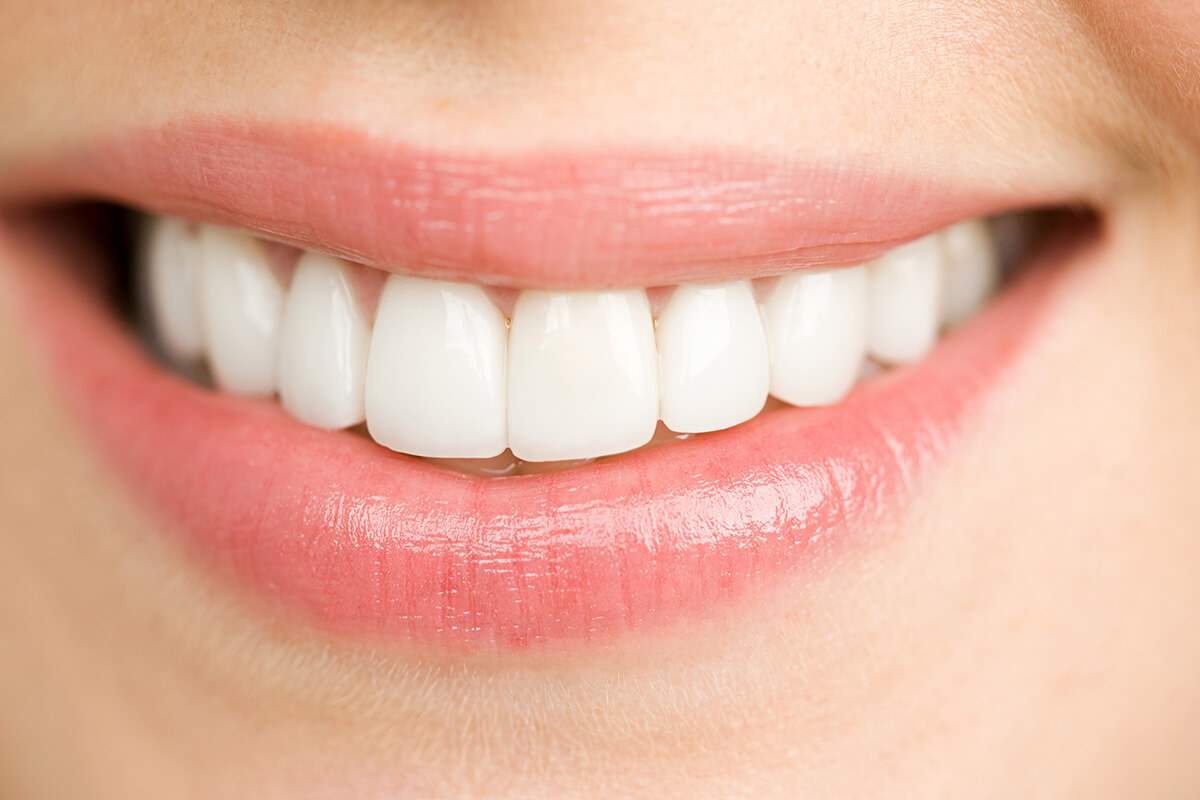Want an affordable way to upgrade your smile? Professional teeth whitening is the most popular cosmetic dental treatment in the U.S. The reason? The results are immediate and long-lasting. In fact, the results from professional teeth whitening may last up to one year or longer. Here’s what to know about keeping the bright, white results from professional teeth whitening.
In-Office Teeth Whitening: Get The Best Results in About an Hour
There is no shortage of teeth whitening products available. They are sold in pharmacies, retail stores, and all over the internet. Most products do offer some whitening benefits. But they can’t compete with the results of in-office teeth whitening provided by your dentist.
In-office teeth whitening is a simple, painless, non-invasive cosmetic treatment. At your whitening appointment, your lips and gums will be protected before the whitening agent is applied to your teeth. A laser light will be directed at the teeth, helping to activate the carbamide peroxide agent. The cycle is generally repeated four times within an hour, revealing teeth that are significantly whiter.
Tips for Maintaining a Bright Smile after Teeth Bleaching
After your professional teeth whitening treatment, maintaining your results will be your responsibility. Here are tips for maintaining bright, white teeth.
Use a Straw
Coffee, tea, soda, wine, and dark juices stain teeth. To maximize the results of teeth whitening, consider using a straw to prevent the dark liquids from coming in direct contact with the front of your teeth.
It can be a bit awkward to drink wine through a straw at a dinner party, so in cases where using a straw isn’t an option, rinse your mouth with plain water after drinking any stain-causing beverages.
Choose Your Meals Carefully
Certain foods are more likely than others to stain your teeth. Dark red and brown sauces, and gravy are known to stain teeth, as are brightly colored berries and sugary beverages. To that end, you may wish to opt for a white sauce over a red sauce more often as one way to maintain the results of your teeth whitening.
Use Whitening Toothpaste
You are welcome to continue to use whitening toothpaste or whitening mouthwash after you’ve had your teeth bleached. While they may not improve significantly on your results, they will help break up surface stains as time passes.
Brush Twice Daily, Floss Daily
All people should brush their teeth twice daily for two minutes to prevent cavities, gum disease, and staining. Likewise, you’ll need to floss your teeth daily using floss or dental tape. Keeping your teeth clean and free of food debris can help maintain the results of professional whitening.
Get a Dental Cleaning Every Six Months
Even those with excellent oral hygiene habits cannot remove all of the plaque that builds up on the teeth. A professional cleaning every six months will help your teeth look their best.
Use a Whitening Touch-Up Kit
Whitening kits available from your dentist are professional-grade products and may be used to whiten your teeth at home. Talk with your dentist about how soon you can use these products after your in-office whitening.
The reality is that results from teeth bleaching may last longer for some people than others. This will depend on the current shade of your teeth and the care you take to maintain your results. When you notice your teeth are no longer as white as they were, talk with your dentist about how often you may have in-office whitening or request an at-home kit for whitening on your own.
Book an Appointment for Whiter Teeth in West Milford, NJ
As a top-reviewed cosmetic dentist serving patients from West Milford, Ringwood, Wanaque, Macopin, Warwick Butler, Riverdale, and surrounding communities, Dr. Jamrozek specializes in helping patients achieve beautiful, healthy smiles. To schedule an appointment, call 973-728-3779 or message us.
Frequently Asked Questions
Does teeth whitening hurt?
No. In-office teeth whitening is a non-invasive cosmetic dental procedure. However, whitening agents can cause temporary tooth sensitivity. If you already have sensitive teeth, other cosmetic dental treatments such as dental veneers may be a better option.
Does insurance pay for teeth whitening?
No. Cosmetic dental treatments are not covered by dental insurance. We do accept all major credit cards for cosmetic treatment.
